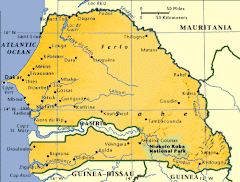To make tents or not - that is the question!
Recently I attended a seminar on personal support raising. It was awesome. Honestly, I was afraid that it would be a lot of sales gimmicks and theological acrobatics. However, it was nothing like I thought that it was going to be. We spent the whole first day in the word of God discovering what God’s plan has always been for funding what He is doing in the world and then discovering biblical perspectives on funding the work of God in the world. Cool stuff! I wished I had this seminar 15 years ago when we first started ministry.
For so long, I’ve thought that the ideal way to support ministry was through tent-making (that is working a "regular" job while doing part-time ministry) and that because it wouldn’t work that well in a good part of the world today (that is the poverty stricken places of the world), we missionaries had to go around and raise our support. However, tent-making was the exception, not the rule, in funding God’s work around the world. Paul was the tent-maker and he was the only Apostle to earn his living from anything other than preaching the Gospel. Not only that, but even Paul didn’t completely fund his ministry through tent-making.
There are three prime examples of Paul working at something other than preaching and teaching to support himself. The first is in Corinth where he met Aquila and Priscilla, who were tent-makers themselves (Acts 18). It is evident that Paul was doing the tent-making until his companions arrived and then he was “compelled by the Spirit” to proclaim the Gospel. It seems that he at least “kicked the evangelism up a notch” when his companions arrived.
It is interesting to note where his companions came from – Macedonia. It was the Macedonian church who supported the church planting work in Corinth (2 Cor. 11:7-9). I wonder if Paul’s companions brought some gifts from the Macedonian church with them when they came. Seeing that gift might have inspired Paul that God wanted him to focus on proclaiming the Gospel, rather than being distracted with making tents.
Another example is in the case of Thessalonica. You may remember that it is to this church that Paul wrote “if anyone will not work, neither shall he eat” (2 Thes. 3:10). What was happening in the Thessalonian church was that they were over-balanced in the doctrine of the second coming of Christ. In fact, they were so over-balanced that they were being idle, and they weren’t being responsible with their time or resources. They had the view of “well, it’s all gonna’ burn anyway!” Paul worked as he discipled them in order to model a strong work ethic against the idleness that characterised their everyday existence.
Interestingly, it was in this setting that Paul received from the Philippians “aid once and again for his necessities” (Phil 4:16). So, even when Paul was working to model a Christian work ethic for a church caught up in idleness, he received support from yet another church. Why would he do this? That brings us to the last example of tent-making.
In Ephesus, Paul apparently did tent-making or something that brought in some income. He told the Ephesian elders that his “hands” had provided for his necessities, and for those who were with him (Acts 20:34). It is interesting to note his reason for this. “I have shown you in everyway,” Paul says, “by laboring like this, that you must support the weak. And remember the words of the Lord Jesus, that He said, ‘It is more blessed to give than to receive’.” (Acts 20:35) This goes along with what Paul was teaching them in Eph. 4:28. So, similar to the situation in the Thessalonian church, Paul was teaching something by working. In Thessalonica he was modeling a good work ethic to combat the idleness he found there. In Ephesus, he was modeling generosity.
The next article that I write will be more about what God’s plan is for funding what He is doing in the world. Tent-making or working to support oneself in ministry was used in Scripture in a very unique setting and for very specific reasons. It was not the ideal. So, come back soon and find out what God has planned from the beginning. It totally transformed our ministry.
Thursday, July 9, 2009
Subscribe to:
Post Comments (Atom)

No comments:
Post a Comment